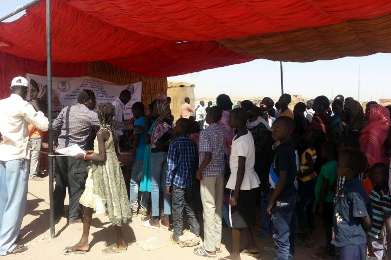Nearly 250,000 S. Sudanese living in Sudan: UNHCR
September 12, 2016 (JUBA) – The total number of South Sudanese in Sudan has exceeded 247,000, the United Nations refugee agency (UNHCR) said.

“This [numbers] represents 41% of the current South Sudanese population that entered from South Sudan following the outbreak of violence there in December 2013,” partly reads’ UNHCR’s statement.
Fluctuating figures in some refugee hosting locations, the agency further stated, were mainly due to the internal movement of refugees within Sudan, particularly in East Darfur and the Kordofan states where refugees have reportedly been seeking seasonal labor.
Meanwhile, on 23 August, the Sudanese authorities confirmed that South Sudanese arrivals in Sudan would be considered as refugees.
This, UNHCR said, was confirmed by the Sudanese state minister of health.
“In Khartoum, on 18-19 August, over 6,000 South Sudanese were moved by the local authorities from three open areas in Jabrona sites, located in Ombeda locality (Omdurman). They were relocated to a new site in Nivasha, 15km from the Jabrona”, it said.
UNHCR, however, said it was not consulted over this new movement of refugees in Sudan, but was monitoring closely the situation.
The agency further said it was engaged in dialogue with the Sudanese federal civil registry to promote the issuance of birth certificates for South Sudanese children born in Sudan.
“Authorities in White Nile State and South Kordofan State have indicated their readiness to issues certificates, which UNHCR welcomes,” it stressed.
(ST)
